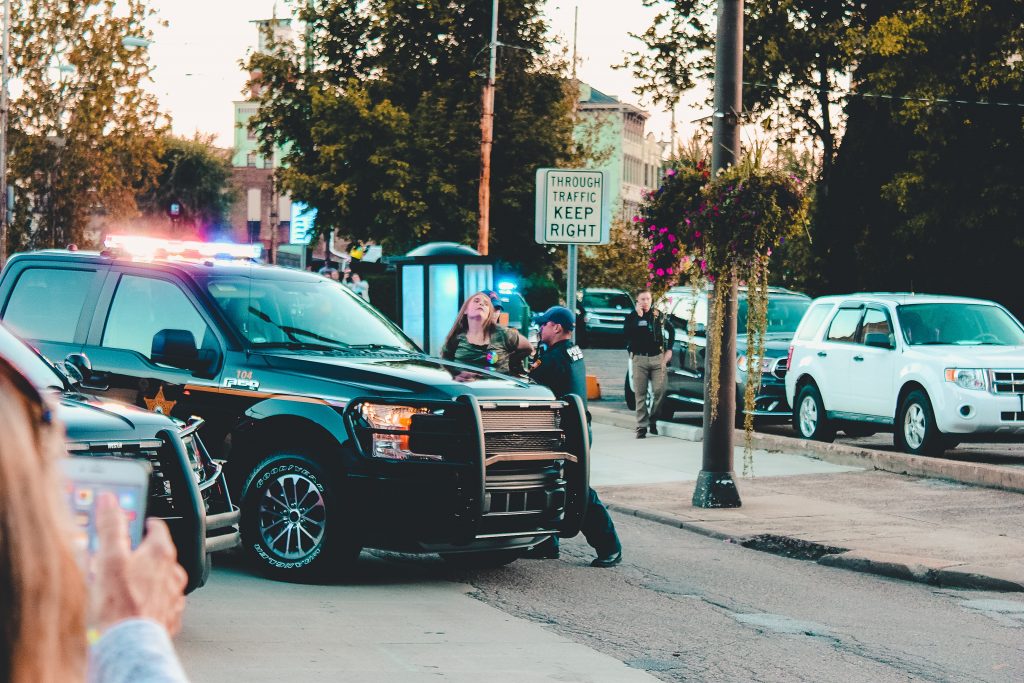
The news often reports stories of individuals who are stopped for a traffic violation and, following a search of the vehicle, end up arrested and charged with a crime. There are plenty of scenarios in which police in New York State are entitled to search a vehicle. However, there are rules and restrictions on when an officer can conduct a search. Knowing one’s rights when it comes to having one’s car searched can help prevent being charged with and possibly convicted of a crime.
Police Searches During Traffic Stops
As part of a traffic stop, an officer always has the right to look through the car windows (using a flashlight if they choose). Most officers do this for their own personal safety, but they can also use any clearly visible evidence of criminal activity discovered in this way. An officer can conduct a full search of a vehicle (i.e. rummaging through compartments, digging under seats, etc.) during a traffic stop under five specific circumstances:
- The officer has a warrant. This can be a search warrant or a warrant for the driver’s arrest. Even with a warrant, there are limitations. For example, if officers suspect a person of having a gun, they are permitted to search the glove compartment but not the sunglasses holder, since it is not possible for a gun to be stashed there.
- The officer has probable cause to believe that the driver or a passenger has been involved in criminal activity. Probable cause would include something such as the smell of marijuana, an admission of guilt, or contraband (drugs or an unlicensed weapon) being in plain sight. A traffic violation alone does not offer probable cause to search the vehicle!
- There is evidence in “plain sight.” If the above-mentioned look through the windows shows clearly visible evidence, such as a dime bag, items recently reported stolen, or any other illegal item, this is justification for a full search of the vehicle.
- There are “exigent circumstances.” This term refers to a situation in which officers believe that evidence of a crime could be destroyed if officers do not act quickly enough to discover and confiscate it.
- The driver consents to the search. Officers will occasionally ask permission to search the vehicle. Unless one of the above circumstances exist, a person is not required to consent. However, if the driver does consent, then any evidence that turns up can be used against him/her.
Police Searches of a Vehicle You Don’t Own
This is a complicated situation and will depend on many factors. If police pull up evidence following a search of a vehicle that does not belong to the driver (or any of the passengers), the best thing to do is to say as little as possible and seek advice of an attorney right away.
Police Searching the Trunk of a Car
The trunk is considered separate from the vehicle, but police can still search it under certain circumstances. For example, in the case of probable cause, the police must have probable cause specifically related to the trunk itself. A police dog that is specially trained to detect the smell or drugs is often sufficient grounds for probable cause to search the trunk, as might certain evidence uncovered in the driver or passenger compartments of the car. Having a warrant or providing consent also allows officers to search the trunk.
Police Searching a Parked Car
Whether a car is parked or pulled over while driving does not affect one’s rights with regards to searches. An officer who suspects wrongdoing or criminal activity can briefly detain a person who is sitting in a parked car, but without consent, a warrant, probable cause, or evidence in plain view, the officer may not search the vehicle. Note that simply sitting in a parked car is not probable cause for a crime.
The same is true of a vehicle parked on private property. The U.S. Supreme Court recently ruled that police cannot search a vehicle that is parked on private property. The ruling does not specify what happens if the vehicle does not belong to the property owner (i.e. a friend or relative’s car). What is known for certain is that if the vehicle owner is also the property owner, and police do not have justification or permission to search the property, the property owner can legally ask the police to leave the premises.
Police Searches After an Accident
A traffic accident by itself is not probable cause to justify a search of one’s vehicle. If the accident leads to an arrest, such as for driving under the influence of marijuana, then a search can be conducted as “incident to arrest.” Likewise, if in the course of investigating the accident, police find evidence of potential criminal activity (such as a white powder on the driver’s clothes, combined with other evidence of illegal substance use), that could be considered probable cause for a search.
Police Searches After DWI/DUI Stop
An incident-to-arrest search can be conducted as part of a DWI/DUI stop if the stop leads to an arrest. In Arizona v Gant, the U.S. Supreme Court limited the instances in which such searches can be conducted. Specifically, police can only search “the area from within which [an arrestee] might gain possession of a weapon or destructible evidence.” Moreover, they can only conduct a search when it is “reasonable to believe evidence relevant to the crime of arrest might be found in the vehicle.” As such, as arrest for DWI drugs would be grounds for a vehicle search, but not for driving without a license (as was the case in Gant).
Rights Regarding Being Asked to Get Out of the Car
It is legal for police to ask drivers to step out of the car during traffic stops. When asked, drivers must comply with this request. This is unlike the driver’s right to refuse a search. The U.S. Supreme Court case Pennsylvania v. Mimms established that asking a driver to exit a vehicle is a minor inconvenience for the driver but can represent a significant safety issue for the officer, for example, by moving the questioning and investigation to the side of the road away from oncoming vehicles.
What Should I Do If Police Have Searched My Vehicle?
If you or a loved one believe police may have illegally searched your vehicle—especially if the search results in a criminal charge—consult with an attorney to protect your rights. The lawyers of the Rosenblum Law are experienced attorneys who have helped many drivers in cases of illegal car searches in New York and New Jersey. Email or call 888-883-5529 for a free consultation about your case.



